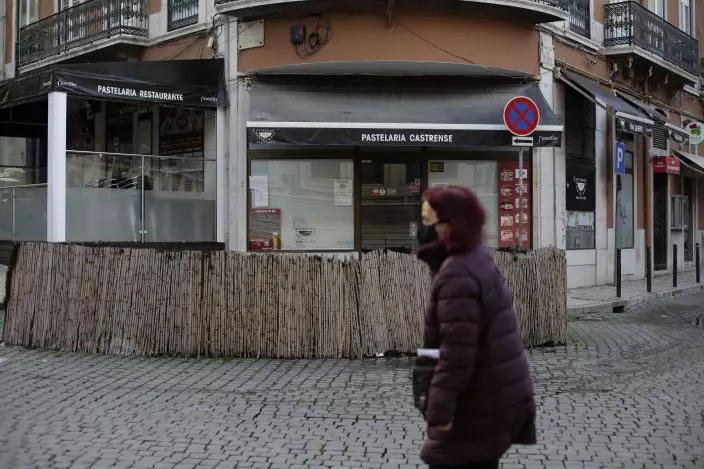Portugal started inoculating the country’s firefighters against COVID-19 on Thursday, as a January surge of cases ebbed amid a lockdown but deaths and pressure on hospitals remained high.
Portuguese firefighters, who number about 15,000, commonly operate ambulances, and they are to be vaccinated over a two-week period. Authorities are due to begin inoculating more than 40,000 police officers in coming days.
The national vaccine plan launched last month with the inoculation of health workers and staff and residents of care homes for older adults.

A woman wearing a face mask walks past a closed restaurant in Lisbon, Tuesday, Feb. 9, 2021. Portugal's COVID-19 infection rate has dropped sharply after a lockdown aimed at addressing a devastating January pandemic surge. (AP PhotoArmando Franca)
Health Minister Marta Temido acknowledged Thursday there had been some “stumbles” in the country's vaccine rollout, which authorities largely blame on the late delivery of doses. Temido said the goal is still to give 70% of the population -- around 7 million people -- a jab by the end of September.
The seven-day average of daily deaths in Portugal is the highest in the world, at 2.05 per 100,000 people, according to Johns Hopkins University.
But the seven-day average of daily new cases has fallen from a peak of 122.37 new cases per 100,000 people on Jan. 27 to 47.56 per 100,000 people.
The Health Ministry says antigen tests are to be more widely used at schools, factories and other places where people gather as part of a new strategy to contain the pandemic.
Parliament was expected later Thursday to extend Portugal’s state of emergency decree, which allows the government to impose the current lockdown, through March 1.
Supporting a lockdown extension, President Marcelo Rebelo de Sousa said in a letter to lawmakers that “the country’s hospital capacity is still being put to the test, even with the help of the whole public health system, the armed forces and the private sector.”


